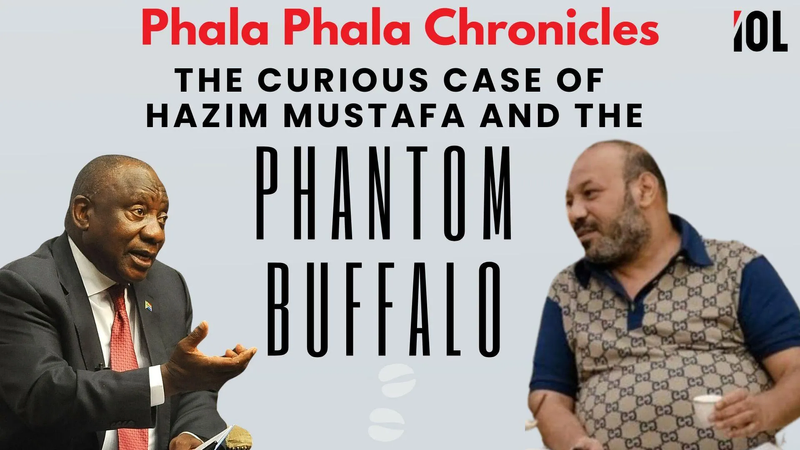As the Constitutional Court prepares to rule on the Economic Freedom Fighters’ (EFF) legal challenge against Parliament’s decision to halt an impeachment inquiry into President Cyril Ramaphosa’s involvement in the Phala Phala scandal, questions about accountability continue to surround the president.
The Phala Phala scandal, which involves allegations ranging from a suspicious cash transaction to the failure to report a high-profile burglary, has raised concerns that Ramaphosa, along with the state, may be placing him above the law.
Despite multiple investigations, Ramaphosa’s own statements, and the failure to refund Sudanese businessman Hazim Mustafa for buffalo purchased in 2019, unanswered questions continue to mount.
1. Why hasn’t Ramaphosa refunded the R8 million for the buffalo?
In December 2019, Hazim Mustafa allegedly paid R8 million for 20 buffalo, yet four years later, the buffalo remain on Phala Phala farm, and Mustafa has yet to receive his refund. Although Ramaphosa confirmed earlier this year that the refund process was underway, no concrete actions have been taken to resolve the matter. The delay in repaying the sum raises questions about the legitimacy of the transaction.
2. Why wasn’t the burglary reported to the police?
In February 2020, a burglary occurred at Phala Phala farm, with large amounts of foreign currency allegedly stolen. However, the incident was only reported to Ramaphosa’s head of security and not to law enforcement, bypassing standard reporting procedures. This raises concerns about what was being concealed and why the omission hasn’t been properly investigated.
3. Where is the proof of Hazim Mustafa’s currency declaration?
Mustafa claims to have declared the $580,000 in cash upon his arrival at OR Tambo International Airport, but the South African Revenue Service (SARS) has found no record of this declaration. This has prompted an investigation into whether the transaction complied with South African tax laws. The absence of verifiable records fuels suspicion about potential violations of the law.
4. What is the true amount of money stolen from Phala Phala?
While Ramaphosa claims that $580,000 was stolen, evidence suggests that the actual amount may have been much higher. One suspect reportedly spent over R10 million on luxury goods, and former intelligence head Arthur Fraser alleged that as much as $8 million was taken. The discrepancies in the reported amount raise further questions about transparency.
5. Why hasn’t Ramaphosa challenged the Ngcobo panel’s findings in court?
An independent parliamentary panel led by retired Chief Justice Sandile Ngcobo raised concerns about the buffalo transaction and the handling of the stolen funds. Despite the ANC blocking further action in Parliament, Ramaphosa has not sought to challenge the panel’s findings in court. If he believes his actions were lawful, why hasn’t he used the judiciary to clear his name?
This week, the EFF appeared before the Constitutional Court to challenge Parliament’s decision to dismiss the impeachment inquiry. The EFF argues that the decision not to pursue an investigation into Ramaphosa’s conduct was unlawful and irrational, citing the advice of the Section 89 panel, which found sufficient grounds for an impeachment investigation.
Above the Law?
Political observers suggest that the Phala Phala scandal is about more than missing currency or unresolved financial transactions—it is now a question of whether South Africa’s highest officeholder is being held to the same standards as ordinary citizens.

For comments, Feedback and Opinions do get in touch with our editor on WhatsApp: +44 7949 297606.
